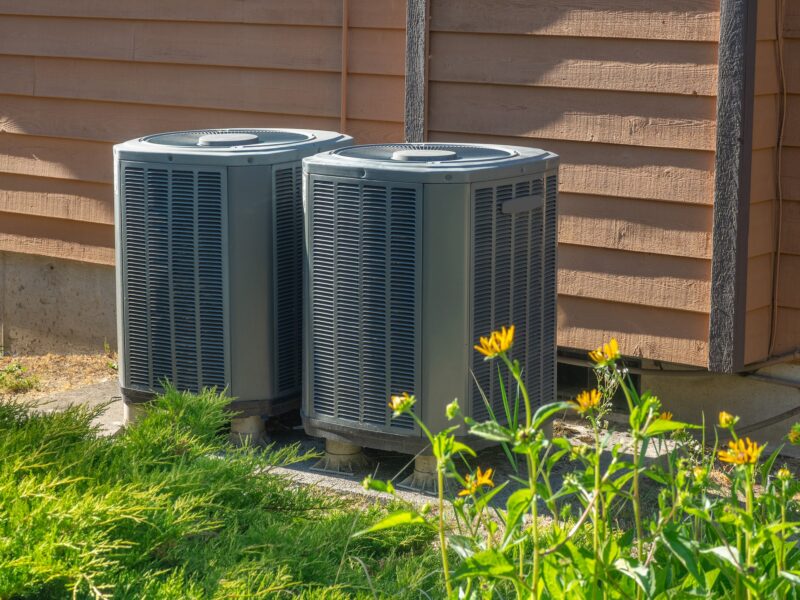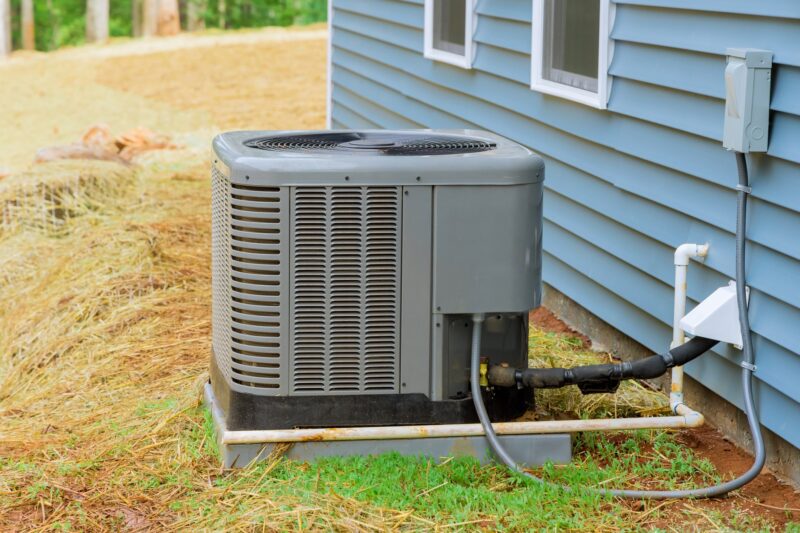FREQUENTLY ASKED QUESTIONS
Why is it important to have a Licensed, Insured and Bonded Contractor?
If a license is required for HVAC repair in your city or state, make sure you check your credentials before making a hiring decision. Licensure shows that the technician has been trained and tested in your state to properly install HVAC systems according to the state’s building codes. Regular insurance means that both you and the technician are protected in case there is an injury or damage to property.
Being bonded is different from being licensed, although the two are sometimes related. When a contractor is bonded, this means he has purchased a surety bond. This is a type of insurance policy that provides a certain amount of protection if the contractor fails to complete a job as required or contracted, by providing compensation to a property owner. Look for technicians with all of these credentials in place.
When should you consider replacing your Air Conditioner?
You may find your old air conditioner is no longer efficient. Recent advances in A/C technology have greatly improved energy efficiency. Consider replacing your unit with an energy-efficient model if your current central air conditioner is 10 or more years old because purchasing an energy-efficient air conditioning unit will help you realize significant savings year after year.
We use a 5,000 rule, take the age of the equipment and multiply that by the repair cost. If the number is more than $5,000, then you should consider a replacement. For example, a 10-year-old unit with a $350 repair equals $3,500. It’s OK to repair.
Florida Power and Light offers a $150 air conditioning rebate if you purchase and install a complete new straight cool/air-cooled high-efficiency A/C system. This includes both indoor and outdoor A/C units. The new unit must have a SEER rating of 16 or 17 and must be installed in a single-family detached home.
What is a SEER rating?
SEER stands for “Seasonal Energy Efficiency Ratio.” It is the ratio of the cooling output of an air conditioner over a typical cooling season, divided by the energy it consumed in Watt-Hours. The current Federal SEER requirement for Florida is now 15.
Should I get the very highest SEER rated air conditioner?
Seer ratings on some units go as high as 25 but should you buy that? No, not necessarily because the cost of the unit is dramatically higher and you may not recoup the extra cost in energy savings.
What is a smart thermostat?
A smart thermostat, as opposed to a programmable thermostat, is typically Bluetooth enabled and can ‘learn’ how to adjust the temperature according to your typical daily routine. This can be very useful if you are one of those people who still have a flashing clock on your CD player. Some have voice control and some can sense if you are in the house or not. Most of them can be controlled by your phone. They are quite a bit more expensive than a standard programmable thermostat. As long as you do actually program your thermostat you should be good with those units, but if you have an older version that you can only turn up or down definitely replace it.
Should I install a bigger Air Conditioner?
An A/C unit is supposed to dehumidify the house as well as cool it. A unit that’s too large will turn on and off very quickly, bringing the temperature down very fast but not removing the humidity from the house. So, you’re losing comfort as well.
To determine the size of an A/C unit a load calculation is performed. Technicians take into account the size of each room, duct condition, the home’s orientation toward the sun, shading, window type, insulation, building materials, tree shade, and regional weather conditions. Assembling this information at the home usually takes an hour or two.
Is Freon still used in Air Conditioners?
R-22 better known as Freon has not been used in air conditioners manufactured after 2010, but it is still legal to use R-22 in older units. However, in 2020 production of R-22 will cease, meaning that if you have an older unit that leaks or breaks down, you will be unable to repair it and will have to buy a new unit that uses R-410A.
TIPS
What to check before calling a technician
If your unit is not running check the most basic things first. Has your breaker tripped? If it has and the unit continues to run properly after being reset, then there is no need to call a technician. But if it continues to trip after a while there is a problem.
Check that your thermostat hasn’t been changed accidentally and that it is programmed correctly.
Check your filters
Check the air filter once per month and replace it as needed. This is especially important during the summer when dust and allergens circulate. If the filter becomes clogged, your system will have to work harder to supply the same amount of cool air.
Replacing filters is one of the easiest and most effective methods of conserving energy and saving money on your HVAC usage. And much like changing the oil in your car, it’s a critical step in maintaining your system’s long-term health.
Don’t let your thermostat take the heat
Don’t place lamps, TV sets, or other heat-producing appliances near your thermostat. The thermostat senses the heat causing the air conditioner to run longer than necessary. When installing a new thermostat, don’t place it in a location where the sun might shine on it directly.
Consider a programmable thermostat
If it’s hard to remember to tweak your thermostat before you leave for work, consider investing in a programmable or smart thermostat.
Weatherize so you don’t cool the whole neighborhood
You want your cold air to stay in and hot air to stay out. Some basic weatherization steps can prevent air loss when you need cool air the most. Seal air leaks with caulking and weather-stripping. Add insulation around air conditioning ducts.
Look out for debris
Keep plants, shrubs, and other landscaping about 2 to 4 feet away from your outdoor unit to ensure adequate airflow.
Install window film to save energy
A great home improvement idea is to install home window film to the insides of your windows. Not only can it help keep your house cooler in the summer, but also warmer in the winter.
Don't turn off your AC
If you are going to be away do not turn off the AC, simply adjust the temperature to a higher setting. Remember part of the sir conditioner’s job is to remove humidity from the atmosphere. Without that function, mold will blossom.



